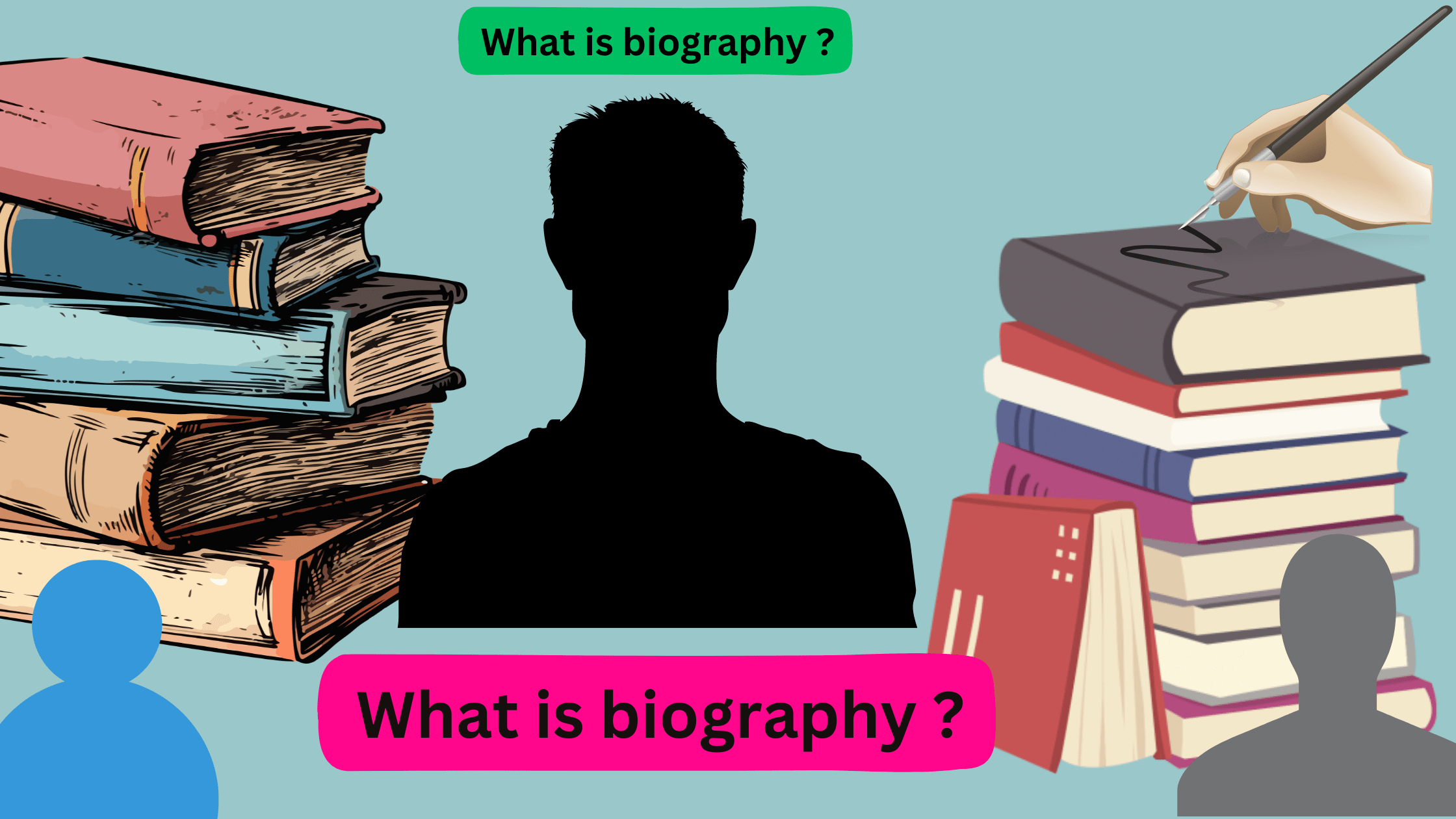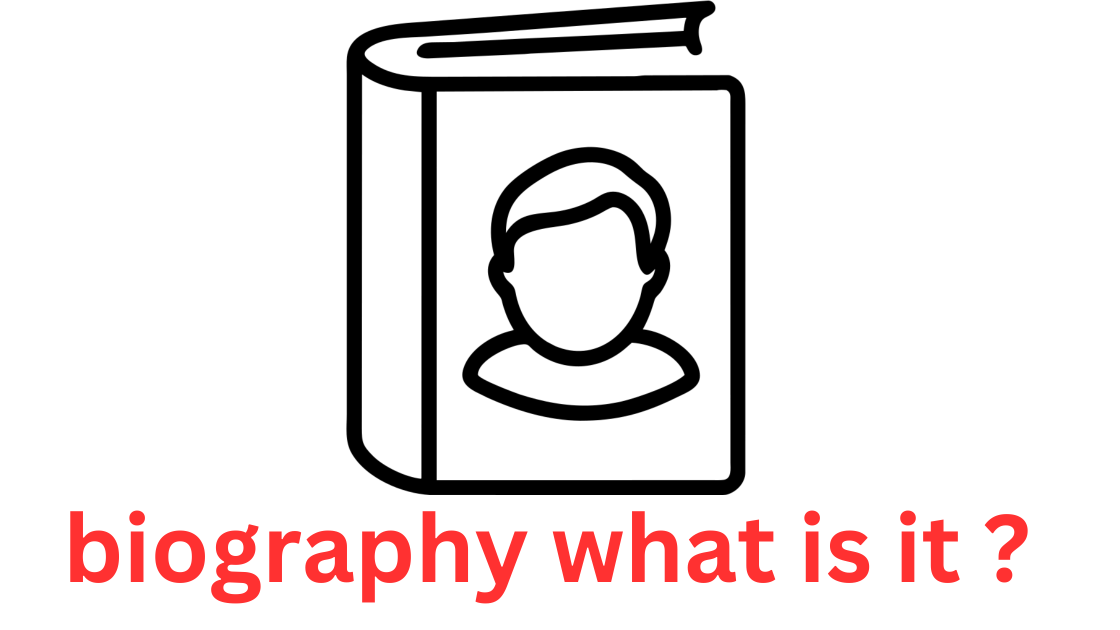In the captivating realm of biographical writing, interviews play a pivotal role in capturing the essence of a person’s life story. By delving into the intriguing narratives behind individuals’ triumphs, struggles, and milestones, interviews inject authenticity into the biographical process. Through engaging conversations and personal anecdotes, biographers can unearth unique perspectives and previously untold tales that add depth and richness to their work.
The power of interviews lies in their ability to elicit candid responses and provide firsthand accounts of pivotal moments in someone’s life. These stories, intertwined with historical context and personal insights, create a vivid tapestry that brings the subject to life on the page.
By incorporating interviews into their research, biographers can move beyond surface-level knowledge and truly grasp the intricacies of their subjects’ experiences. Whether it’s a famous figure or an everyday person, interviews add an intimate touch to biographical writing, allowing readers to connect with the subject on a deeper level.
In this article, we will explore the significant role that interviews play in biographical writing, highlighting the benefits they provide to both biographers and readers alike. Join us as we delve into the art of capturing a life through the spoken word.
The importance of interviews in biographical writing
Interviews are the lifeblood of biographical writing, providing biographers with a direct connection to their subjects and an unparalleled opportunity to capture the essence of a person’s life story. Through engaging conversations, biographers can delve into the intricate details and personal experiences that shape an individual’s journey, revealing insights that would otherwise remain elusive.
The power of interviews lies in their ability to humanize the subject, moving beyond the surface-level facts and figures that can be gleaned from historical records or secondary sources. By listening to the subject’s own voice, biographers can gain a deeper understanding of their motivations, emotions, and the pivotal moments that have defined their lives. This intimate perspective lends an authenticity and depth to the biographical narrative that simply cannot be achieved through impersonal research alone.
Moreover, interviews allow biographers to uncover previously untold stories and nuances that may not have been documented elsewhere. These personal anecdotes and unique perspectives add richness and complexity to the biographical portrait, providing readers with a more holistic and compelling understanding of the subject. By capturing the subject’s own words and reflections, biographers can bring their subjects to life on the page, fostering a deeper connection between the reader and the individual being profiled.
Types of interviews for biographical research
When it comes to biographical writing, biographers have a diverse array of interview techniques at their disposal, each offering unique opportunities to gather valuable information and insights. From in-depth, one-on-one conversations to group discussions and even virtual interviews, the choice of interview format can greatly influence the quality and depth of the biographical material.
One-on-one interviews are perhaps the most common and effective approach in biographical research, allowing biographers to establish a rapport with their subjects and delve into the most intimate details of their lives. These face-to-face encounters provide a private and comfortable setting for subjects to share their personal stories, thoughts, and reflections without the influence of others. Through active listening and probing questions, biographers can uncover hidden gems of information that might not surface in a more formal or public setting. In addition to individual interviews, group discussions can also play a valuable role in biographical writing. By gathering a panel of individuals who have had significant interactions with the subject, biographers can gain a multifaceted perspective on the person’s life and legacy. These group settings can foster a dynamic exchange of anecdotes, memories, and unique insights that may not emerge in a one-on-one interview. The interplay between different voices and experiences can shed light on the subject’s relationships, character, and the impact they had on those around them.
Furthermore, the rise of digital technologies has introduced new possibilities for biographical research, including virtual interviews conducted via video conferencing platforms or even asynchronous exchanges through email or messaging. While these remote interactions may lack the personal touch of in-person meetings, they can still provide valuable information and allow biographers to connect with subjects who may be geographically distant or have limited availability. Virtual interviews can also be particularly useful for capturing the perspectives of individuals who may be more comfortable expressing themselves in a digital format.
Planning and conducting interviews
Effective biographical writing hinges on the careful planning and execution of interviews, as these conversations serve as the foundation for capturing the subject’s life story. Before embarking on the interview process, biographers must thoroughly research their subject, familiarize themselves with the available historical records and secondary sources, and develop a comprehensive understanding of the individual’s background, accomplishments, and pivotal moments.
With this foundational knowledge in place, biographers can then begin the process of planning the interview. This involves crafting a detailed interview guide that outlines the key topics and questions to be addressed, while also leaving room for spontaneous follow-up inquiries that may arise during the conversation. The interview guide should be tailored to the specific subject, ensuring that the questions are relevant, engaging, and designed to elicit rich, detailed responses that will enrich the biographical narrative.
When it comes to conducting the actual interview, biographers must strike a delicate balance between guiding the conversation and allowing the subject to share their story organically. Active listening, empathy, and a genuine interest in the subject’s experiences are crucial in establishing a comfortable and trust-building rapport. Biographers should also be mindful of the subject’s emotions and comfort level, being prepared to adjust the pace or direction of the interview as needed to ensure the subject feels at ease and willing to open up.
Throughout the interview process, biographers must be diligent in their note-taking, capturing not only the subject’s words but also their body language, tone, and any other non-verbal cues that may provide additional context and nuance to the biographical material. By meticulously documenting these details, biographers can ensure that the essence of the subject’s story is faithfully preserved and can be effectively woven into the final biographical work.
Recording and transcribing interviews
In the digital age, the ability to record and transcribe interviews has become an invaluable tool for biographers, allowing them to capture the subject’s words with precision and accuracy. By utilizing audio or video recording devices, biographers can ensure that they do not miss any crucial details or quotations that may be essential to the biographical narrative.
The process of transcribing these recorded interviews is equally important, as it provides biographers with a detailed, verbatim record of the conversation. Transcription not only allows for the precise documentation of the subject’s words, but it also enables biographers to revisit the interview and identify any nuances or subtleties that may have been overlooked during the initial conversation.
Moreover, the act of transcription can be a powerful tool for biographers, as it encourages them to engage more deeply with the interview material and identify potential themes, patterns, and areas for further exploration. By immersing themselves in the transcripts, biographers can gain a more intimate understanding of their subject’s personality, communication style, and the emotional undercurrents that may be present in their responses.
While the process of recording and transcribing interviews can be time-consuming, the benefits it offers to biographical writing are undeniable. By preserving the subject’s own words and capturing the nuances of their speech, biographers can ensure that the final biographical work reflects the authentic voice and experiences of the individual, fostering a deeper connection with the reader.
Interview techniques for capturing authentic stories
Crafting a compelling and authentic biographical narrative requires biographers to go beyond the mere collection of facts and dates, delving into the personal experiences, emotions, and perspectives that shape an individual’s life story. To achieve this level of authenticity, biographers must employ a range of specialized interview techniques that facilitate the sharing of intimate and often deeply personal narratives.
One of the most effective strategies is the use of open-ended questions that encourage the subject to share their story in their own words. By avoiding yes-or-no questions or narrow inquiries, biographers can prompt the subject to reflect on their experiences, emotions, and thought processes, revealing insights that may not have surfaced through more structured questioning.
This approach allows the subject to guide the conversation, enabling biographers to uncover unexpected and illuminating details that can breathe life into the biographical narrative.
In addition to open-ended questions, biographers can also leverage techniques such as active listening and empathetic probing to foster a deeper connection with their subjects. By demonstrating genuine interest and concern, biographers can create an environment of trust and comfort, encouraging the subject to open up and share their most intimate thoughts and experiences. Through attentive listening and thoughtful follow-up questions, biographers can guide the subject to explore the emotional and psychological aspects of their life story, adding depth and nuance to the biographical portrait.
Furthermore, biographers can employ visualization and storytelling techniques to help their subjects access and articulate their memories and experiences more vividly. By inviting the subject to describe a particular scene or event in detail, or to imagine themselves back in a specific moment, biographers can tap into the subject’s sensory recollections and evoke a more tangible and emotionally resonant narrative. This approach not only enhances the richness of the biographical material but also helps the subject to connect more deeply with their own life story.
Incorporating interview material into biographical writing
The seamless integration of interview material into the biographical narrative is a crucial aspect of crafting a compelling and authentic work. Biographers must strike a delicate balance between preserving the subject’s own voice and weaving it cohesively into the broader context of the biographical writing.
One effective technique is the strategic use of direct quotations from the interviews, which can lend a powerful and immediate sense of the subject’s personality, tone, and manner of expression. By carefully selecting and incorporating these verbatim excerpts, biographers can infuse the biographical text with the subject’s unique voice, allowing the reader to feel as if they are in direct conversation with the individual being profiled.
In addition to direct quotations, biographers can also effectively incorporate interview material through the use of paraphrasing and summarization. By distilling the essence of the subject’s responses and integrating them seamlessly into the narrative, biographers can convey the subject’s perspectives and experiences without disrupting the flow of the text. This approach allows biographers to maintain the authenticity of the subject’s voice while ensuring that the biographical work remains cohesive and engaging for the reader.
Furthermore, biographers can leverage the insights and anecdotes gleaned from interviews to provide context, nuance, and emotional depth to the biographical narrative. By juxtaposing the subject’s personal reflections with historical facts, sociopolitical events, or other relevant information, biographers can create a rich tapestry that illuminates the subject’s life and times, helping the reader to better understand the individual’s motivations, challenges, and achievements.
The successful integration of interview material into biographical writing requires a keen eye for detail, a deep understanding of the subject, and a mastery of narrative techniques. By striking the right balance between the subject’s voice and the biographer’s own storytelling, biographers can create a biographical work that is both authentic and captivating, leaving a lasting impression on the reader.
Ethical considerations in interviewing for biographical writing
As biographers delve into the intimate details of their subjects’ lives, they must navigate a complex web of ethical considerations to ensure that their work respects the subject’s privacy, autonomy, and well-being. The power of interviews to uncover sensitive information places a significant responsibility on biographers to uphold the highest standards of ethical conduct.
One of the primary ethical concerns in biographical interviewing is the issue of informed consent. Biographers must ensure that their subjects fully understand the purpose and scope of the interview, as well as the potential implications of their participation. This includes providing clear explanations about how the information gathered will be used in the biographical work and obtaining the subject’s explicit consent to be interviewed and have their personal details included in the final publication.
Additionally, biographers must be mindful of the emotional and psychological impact that the interview process can have on their subjects. Delving into deeply personal experiences, traumas, or sensitive topics can be emotionally taxing, and biographers must be prepared to handle such situations with empathy, compassion, and a willingness to pause or redirect the conversation if the subject becomes visibly distressed. Maintaining a supportive and non-judgmental approach is essential in ensuring that the subject feels safe and respected throughout the interview process.
Another crucial ethical consideration is the protection of the subject’s privacy and confidentiality. Biographers must be diligent in safeguarding any sensitive or potentially damaging information that is shared during the interviews, respecting the subject’s right to control the narrative of their own life story. This may involve withholding certain details or anecdotes, or even seeking the subject’s approval before including specific information in the biographical work.
Furthermore, biographers must be cognizant of the potential for conflicts of interest or undue influence, particularly when interviewing subjects who are closely connected to the biographer or have a vested interest in the portrayal of the subject’s life. In such cases, biographers must strive for objectivity, maintaining a critical distance and ensuring that their own biases or agendas do not unduly shape the biographical narrative.
By upholding these ethical principles, biographers can ensure that their work not only honors the subject’s life story but also respects the subject’s dignity, autonomy, and well-being. This commitment to ethical conduct not only strengthens the credibility and integrity of the biographical work but also fosters a deeper sense of trust and collaboration between the biographer and the subject.
Examples of successful biographical writing using interviews
The power of interviews in shaping compelling and authentic biographical narratives is evident in the work of numerous acclaimed biographers. One such example is Robert Caro’s acclaimed multi-volume biography of Lyndon B. Johnson, which has been lauded for its meticulous research and its ability to capture the complexities and contradictions of the former U.S. president.
Caro’s approach to biographical writing is heavily reliant on interviews, with the biographer conducting thousands of conversations with those who knew Johnson intimately, including family members, political allies, and adversaries. By delving into the subject’s personal experiences, motivations, and decision-making processes, Caro was able to construct a nuanced and multifaceted portrait of Johnson, revealing the man behind the political figure.
Another exemplary work of biographical writing that showcases the impact of interviews is “Unbroken” by Laura Hillenbrand. In this captivating account of the life of Louis Zamperini, a World War II prisoner of war, Hillenbrand relied heavily on extensive interviews with the subject himself, as well as those who were close to him. By capturing Zamperini’s own voice and personal reflections, Hillenbrand was able to craft a deeply moving and immersive narrative that transported readers into the harrowing experiences of the war hero.
Similarly, the acclaimed biography “Steve Jobs” by Walter Isaacson is a testament to the power of interviews in biographical writing. Isaacson’s access to the notoriously private and guarded Apple co-founder, as well as his family members, colleagues, and associates, allowed him to paint a comprehensive and nuanced portrait of the iconic tech visionary. The inclusion of direct quotations and personal anecdotes from these interviews lent an unparalleled authenticity to the biographical work, providing readers with a rare and intimate glimpse into the life of a complex and influential figure.
These examples demonstrate how the strategic incorporation of interview material can elevate biographical writing, transforming it from a mere recitation of facts and dates into a captivating and deeply human exploration of an individual’s life. By harnessing the power of the spoken word, biographers can breathe life into their subjects, fostering a deeper connection between the reader and the person being profiled.
The power of interviews in bringing biographies to life
In the realm of biographical writing, the power of interviews cannot be overstated. These candid conversations serve as the conduit through which biographers can uncover the unique perspectives, personal experiences, and emotional nuances that shape an individual’s life story. By delving into the subject’s own words and reflections, biographers can infuse their work with an authenticity and depth that simply cannot be achieved through impersonal research alone.
The incorporation of interview material into biographical writing is a delicate and nuanced process, requiring biographers to strike a careful balance between preserving the subject’s voice and seamlessly integrating it into the broader narrative. Through the strategic use of direct quotations, paraphrasing, and the contextual framing of interview insights, biographers can create a biographical work that is both captivating and true to the subject’s lived experience.
Moreover, the ethical considerations inherent in the interview process are of paramount importance, as biographers must navigate the complexities of informed consent, emotional sensitivity, and the protection of the subject’s privacy and confidentiality. By upholding the highest standards of ethical conduct, biographers can ensure that their work not only honors the subject’s life story but also fosters a relationship of trust and collaboration between the biographer and the subject.
Ultimately, the role of interviews in biographical writing is to breathe life into the subject, to bring their triumphs and struggles, their joys and sorrows, into vivid focus for the reader. Through the power of the spoken word, biographers can transport their audience into the heart and mind of the individual being profiled, creating a lasting connection that transcends the boundaries of the written page. It is this transformative power of interviews that makes them an indispensable tool in the captivating art of biographical writing.


